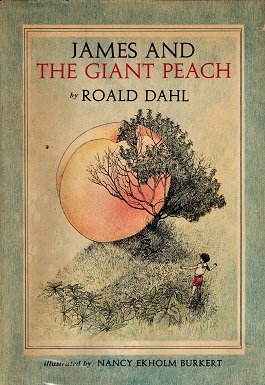Johannes Vilhelm Jensen
Explore the timeline of Johannes Vilhelm Jensen, the Danish author and Nobel Prize laureate in Literature. Follow his journey from his birth, through his influential literary career, to his lasting impact on modern Danish literature. Discover key milestones in his life, including major publications and awards, encapsulating the essence of his contributions to literature and culture.
Birth of Johannes Vilhelm Jensen
Johannes Vilhelm Jensen, an influential Danish author, was born on January 20, 1873, in Farsø, Denmark. He was the son of a veterinarian and grew up in the North Jutland region. Jensen's upbringing in this rural area later greatly influenced his literary works, providing a rich background for his novels and poems. During his lifetime, Jensen would go on to become one of Denmark's most celebrated writers, contributing significantly to Danish literature with his groundbreaking themes and style.
Publication of 'Himmerland Stories'
In 1903, Johannes Vilhelm Jensen published the 'Himmerland Stories', a collection of tales set in the region of Himmerland, where he was born and raised. These stories are noted for their vivid descriptions of rural life and the land's beauty, along with their exploration of the human experience. They established Jensen as a prominent figure in Danish literature and showcased his talent for bringing the Danish countryside and its inhabitants to life through his words.
Exploration to America
In 1906, Johannes Vilhelm Jensen embarked on a journey to the United States, an experience that provided him with new perspectives and inspiration for his writing. During this trip, Jensen explored various parts of the country, drawing inspiration from the landscapes and cultures he encountered. This journey played a crucial role in shaping his later works, influencing his themes and his approach to literature as he continued to explore ideas of humanity and nature.
Publication of 'The Fall of the King'
'The Fall of the King' (Danish: 'Kongens Fald') is a historical novel by Johannes Vilhelm Jensen, published in 1907. The novel, recognized as one of his masterpieces, is set in Denmark during the decline of the Middle Ages and follows the life of Mikkel Thøgersen. Through its narrative, Jensen explores themes of identity, power, and history. The book is highly regarded for its deep existential insights and literary innovation.
Awarded the Holberg Medal
In 1922, Johannes Vilhelm Jensen was awarded the prestigious Holberg Medal, a Danish literary award established in honor of the playwright Ludvig Holberg. This accolade was in recognition of Jensen's substantial contributions to Danish literature. By this time, Jensen had become one of Denmark's leading literary figures, with numerous acclaimed works that included novels, short stories, and poetry. The award highlighted his influence and the enduring impact of his literary achievements.
Publication of 'The Long Journey'
'The Long Journey' (Danish: 'Den lange Rejse') is a monumental work by Johannes Vilhelm Jensen, published in 1928. This epic novel spans prehistoric times to the discovery of America, exploring humanity’s development and the spread of civilization. Jensen blends myth, history, and fiction in a sweeping narrative that examines themes of progress and human endurance. The novel is considered one of his major works and showcases his ambitious narrative style and imaginative scope.
Jensen's Poetry Collection 'Digte 1901-43'
In 1944, Johannes Vilhelm Jensen published 'Digte 1901-43', a comprehensive collection of his poetry written over four decades. This collection covers a wide array of themes, including nature, humanity, and the passage of time. Jensen's poetic voice is celebrated for its lyrical quality and philosophical depth. His poetry often reflects on the human condition and the wonders of the natural world, cementing his reputation as a versatile and philosophical writer.
Received the Nobel Prize in Literature
In 1944, Johannes Vilhelm Jensen was awarded the Nobel Prize in Literature. This prestigious recognition was given 'for the rare strength and fertility of his poetic imagination with which is combined an intellectual curiosity of wide scope and a bold, freshly creative style.' Jensen is the only Danish author to have been awarded the Nobel Prize in Literature, a testament to the significance of his work and his impact on literature.
Death of Johannes Vilhelm Jensen
Johannes Vilhelm Jensen passed away on November 25, 1950, in Copenhagen, Denmark. His death marked the end of a prolific career spanning over five decades, during which he produced a substantial body of work, including novels, short stories, and poetry. Jensen's literary contributions have had a lasting impact on Danish literature and continue to be celebrated for their inventive style and exploration of profound themes. His legacy endures through his influential works and the inspiration they provide to future generations.
Posthumous Publication of 'Brœndende Bagenkop'
In 1951, a year after his death, Johannes Vilhelm Jensen's novel 'Brœndende Bagenkop' was published posthumously. This work reflects the continuation of Jensen's exploration of human experience, nature, and individual identity, themes prevalent throughout his oeuvre. The novel was well-received and added to his legacy as a writer who consistently pushed the boundaries of literary creativity and thematic depth, further cementing his status as a major figure in literature.
Frequently asked questions about Johannes Vilhelm Jensen
Discover commonly asked questions regarding Johannes Vilhelm Jensen. If there are any questions we may have overlooked, please let us know.
When was Johannes Vilhelm Jensen born?
What is Johannes Vilhelm Jensen best known for?
Who was Johannes Vilhelm Jensen?
When did Johannes Vilhelm Jensen win the Nobel Prize in Literature?
Related timelines
More timelines connected to Johannes Vilhelm Jensen







